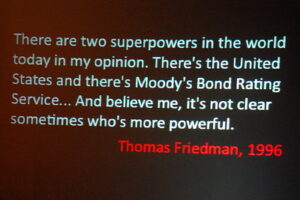A new survey conducted by New America shows Americans’ decreasing satisfaction with the country’s colleges and universities. The Varying Degrees sixth annual survey measures how Americans feel about https://wccwatch.org/?p=6469&preview=truepost-secondary education opportunities.
The 2022 survey found that respondents’ beliefs that higher education makes a positive contribution to American society fell from 69% in 2020 to just 55% this year. Despite this, more than 6 out of 10 respondents say that Americans need a post-secondary degree of some sort to ensure financial security. More than 25% say that credential needs to be at least a bachelor’s degree.
This decline is important. While most survey respondents still believe that post-secondary education is a good personal investment, fewer believe in education’s power as a social investment. The declining stature of higher education closely ties with respondents’ beliefs that higher education costs too much. Second, respondents believe that online education offers a similar benefit to in-person instruction, but that online instruction should cost less than the same courses offered in the classroom.
Right now, no educational institution I’m aware of charges less for online instruction. In fact, most schools charge a separate fee for online classes. This puts additional pressure to cut costs on schools that want to produce a high volume of online coursework.
Additional findings show that respondents want more accountability when it comes to higher education spending. That accountability should come in the form of higher graduation rates, lower costs, higher wages for graduates, and reduced student loan debt.
This is the part where our esteemed members of the Board of Trustees should be paying close attention. The public wants:
- MORE ACCOUNTABILITY
- LOWER COSTS FOR STUDENTS
- HIGHER RETURN ON COMMUNITY INVESTMENT
Public wants accountability for higher education spending
Nowhere in the survey did respondents say they want higher education institutions to build and operate hotels and convention centers. The survey did say, however, that respondents want more transparency and more accountability regarding how public dollars intended for education get spent, and they want lower student costs.
That’s bad news for Trustees who “are fine” with raising student tuition and fees to cover uncontrolled spending. Or Trustees who authorize high executive compensation for middling performance. Or those who waste public dollars on get-rich-quick schemes and unnecessary construction. It’s also not good for the public, that increasingly expects authentic accountability for the extraordinary money they spend on higher education.
These demands will be magnified for community colleges, largely because they’re much closer to and financially dependent on their communities. The era of “look-the-other-way” governance … IS. OVER.
The plummeting dissatisfaction with higher education’s contribution to the community will issue in demands for transparency and accountability. For example, if the Washtenaw County taxpayers are going to fork over $60M-$65M in the coming years to Washtenaw Community College, WCC’s administration had better be prepared to show the benefit of that decision. The benefit had better come in the form of high employment following graduation, and high salaries for WCC graduates.
$12 per hour doesn’t count as a high-paying job. (At the moment, that’s Michigan’s new minimum wage.)
It is time for Trustees to provide actual oversight
Taxpayers will demand more than a handful of low-wage jobs and “local employer job training programs” that are little more than corporate welfare for businesses that don’t want to design and pay for their own new employee training. These programs offer little to no benefit to the local economy because they’re designed to fill $12/hr. jobs. Not sure how much economic stimulus you can generate with jobs that pay less than $25,000 per year.
If you expect the public to continue to invest in education, you should be prepared to demonstrate how you are meeting the mandate the public has given you. The New America survey already shows the sharp drop in public satisfaction with higher education. How much longer will it be before the public starts to reclaim their tax dollars?
Photo Credit: Alex DROP, via Flickr





























